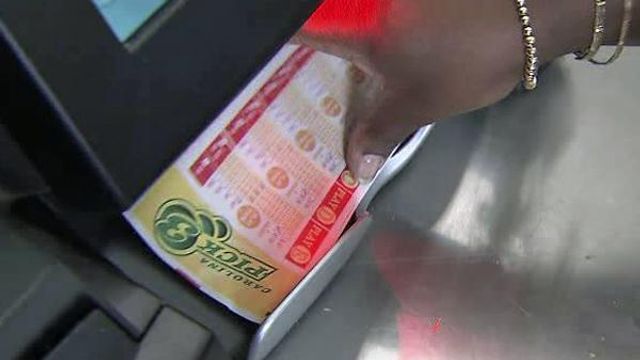Lottery is replacement, not addition in school budgets
When state lawmakers passed the lottery in 2005, they promised that the money would not replace tax dollars meant for education, but analysis of the numbers shows that is exactly what has been happening.
Posted — Updated“The whole thing of the lottery is supposed to be for education, and they're still coming back with such a shortage. I believe the money has been misspent like a lot of our other tax dollars,” she said.
When state lawmakers passed the lottery in 2005, they promised that the money would not replace tax dollars meant for education, but analysis of the numbers shows that is exactly what has been happening.
While the lottery meets its revenue raising goals, cuts elsewhere in the state budget mean the stream of funding for education has continued a downward trend.
A look at the general fund education allotment since the lottery was established shows spending slowly increased, but the actual percentage of the general fund allotted to education has dropped.
“Money is moved around. We don't know how much money North Carolina would spend if we didn't have the lottery,” said longtime lottery critic Chris Fitzsimon, who is with government watchdog group N.C. Policy Watch.
“The devastating effect is that convinces people around the state that education is funded,” he added.
The lottery's net proceeds account for just 4 percent of North Carolina's total public school spending. After prizes and administrative costs, 35 cents of each dollar spent on tickets goes toward pre-kindergarten programs, reducing public school class sizes, college scholarships and school construction.
“I don't think we've ever seen the lottery as a game changer. We've seen it as: this is a nice addition to our portfolio,” said Wake County Debt Manager Nicole Kreiser.
Kreiser says Wake County's annual construction allotment, about $10 million this year, covers less than half of the cost of an elementary school. Lottery money helped build the new Herbert Akins Elementary in Fuquay-Varina.
The problem, she says, is that state leaders pulled back corporate tax receipts that were also going to build schools.
“It's essentially gone and we've been left with the lottery, so that may be a supplant issue,” Kreiser said.
It’s the same issue for lottery money directed to reduce class size. About $100 million pays for approximately 2,000 teachers. That allotment helps maintain student-to-teacher ratios in kindergarten through third grade based on state statute, but not reduce class size. Plus, budget cuts elsewhere are increasing class sizes in higher grades.
Samantha Cibelli, a recent Meredith College graduate, is one of more than 31,000 North Carolina students who received lottery scholarships this academic year – on average, $1,200 per student per year. It can't replace tax money because lottery dollars created the scholarship.
“It's helping on some accounts. I'm here. I can say I've been helped by the lottery,” Cibelli said. “I appreciate that, and I'm sure everyone else who receives it feels similarly.”
Related Topics
• Credits
Copyright 2024 by Capitol Broadcasting Company. All rights reserved. This material may not be published, broadcast, rewritten or redistributed.





